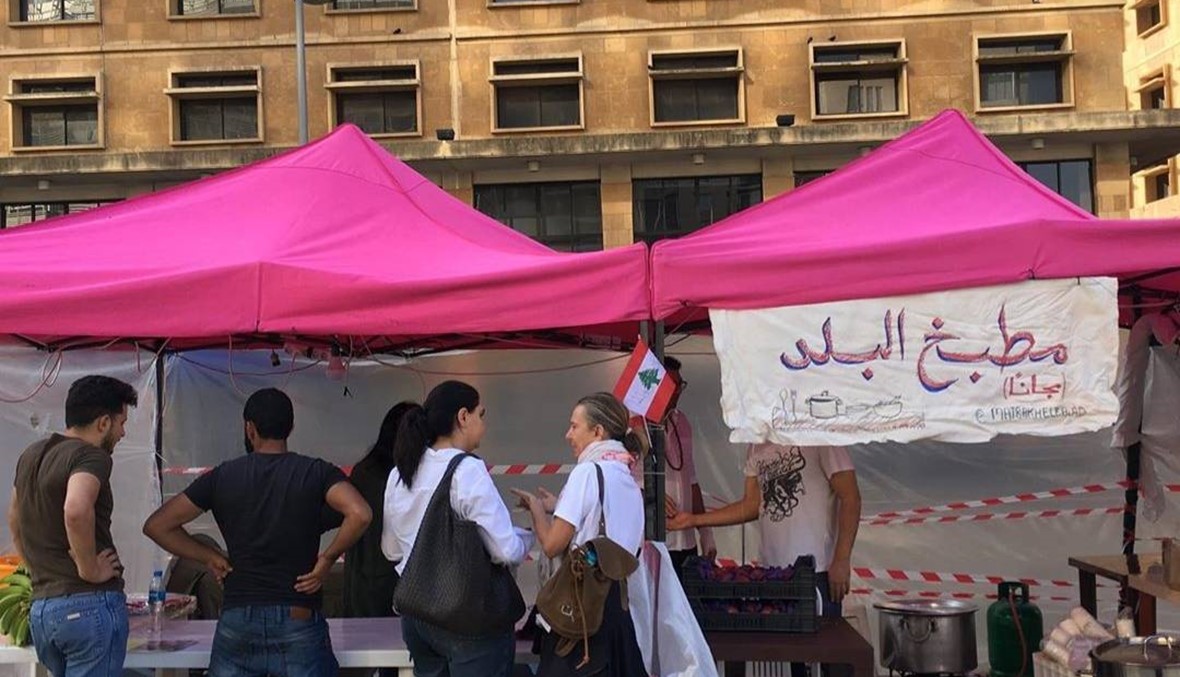
BEIRUT: Every night at Martyr’s Square in a small corner in Downtown, Beirut, the high-pitched sound of the clanging of pots and pans can be heard three times: at five, seven and nine in the evening. Usually, this sound signals that “food is ready” for the hundreds of protestors who visit Downtown daily “and Beirut in general,” according to chef Wael Lazkani.
Lazkani is the founder of Matbakh el Balad, an initiative that, together with the help of volunteers, feeds around 1000 hungry protestors a day.
“It’s not just the protesters who are welcome to eat in our humble corner,” Lazkani said. “It’s people from all over Beirut. The economic crisis in this country has left many families struggling,” he added.
The idea came to Lazkani's mind on the third day of the revolution. "We were hearing rumors that the protestors were hungry and no one was feeding them. So my friends and I brought a huge cooking pot, a portable stove and some food to prepare. That day, we made soup for 200 people,” he said.
Word quickly spread about a chef feeding people for free, and soon enough, people were sending food from their own kitchens to help.
After three to four days, Lazkani was overtaken by the quantity of food that's being given, and by the number of people who showed up when they heard the now-customary sound of clanging pots and pans.
“I realized that the economic mismanagement of this country had actually resulted in hunger. I realized the need for an initiative like Matbakh el Balad,” Lazkani told Annahar.
Matbakh El Balad serves food for free and it has a donation box for those who can contribute. The kitchen has close to 30 volunteers, with 10 volunteers taking daily shifts and organizing their schedules around the initiative. “We’re here every day after 4:00 p.m., except when there are general strikes,” said Lazkani.
Annahar spoke to Sahar Hafdah, a volunteer at Matbakh El Balad who joins after her shift as a restaurant manager.
“I’ve been with the initiative since day one. When Wael took out his cooking pot and asked for our help, I didn’t think twice,” Hafdah said. “The idea was to feed the people sleeping here in tents, then we found out there was a need among the larger crowd and we’ve been catering to that ever since.”
Lazkani and Hafdah realize that, if Matbakh El Balad were to continue operating, it needs a financial plan. “We’ve already started saving money, and we’re being careful with the cost of the food we cook,” Lazkani said. “For example, we’re focusing on grains instead of meat so that our budget holds. We hope we can sustain this initiative in the future.”





 Messenger
Messenger
 Whatsapp
Whatsapp
 Threads
Threads
 Email
Email
 Print
Print
 X
X
 Facebook
Facebook

